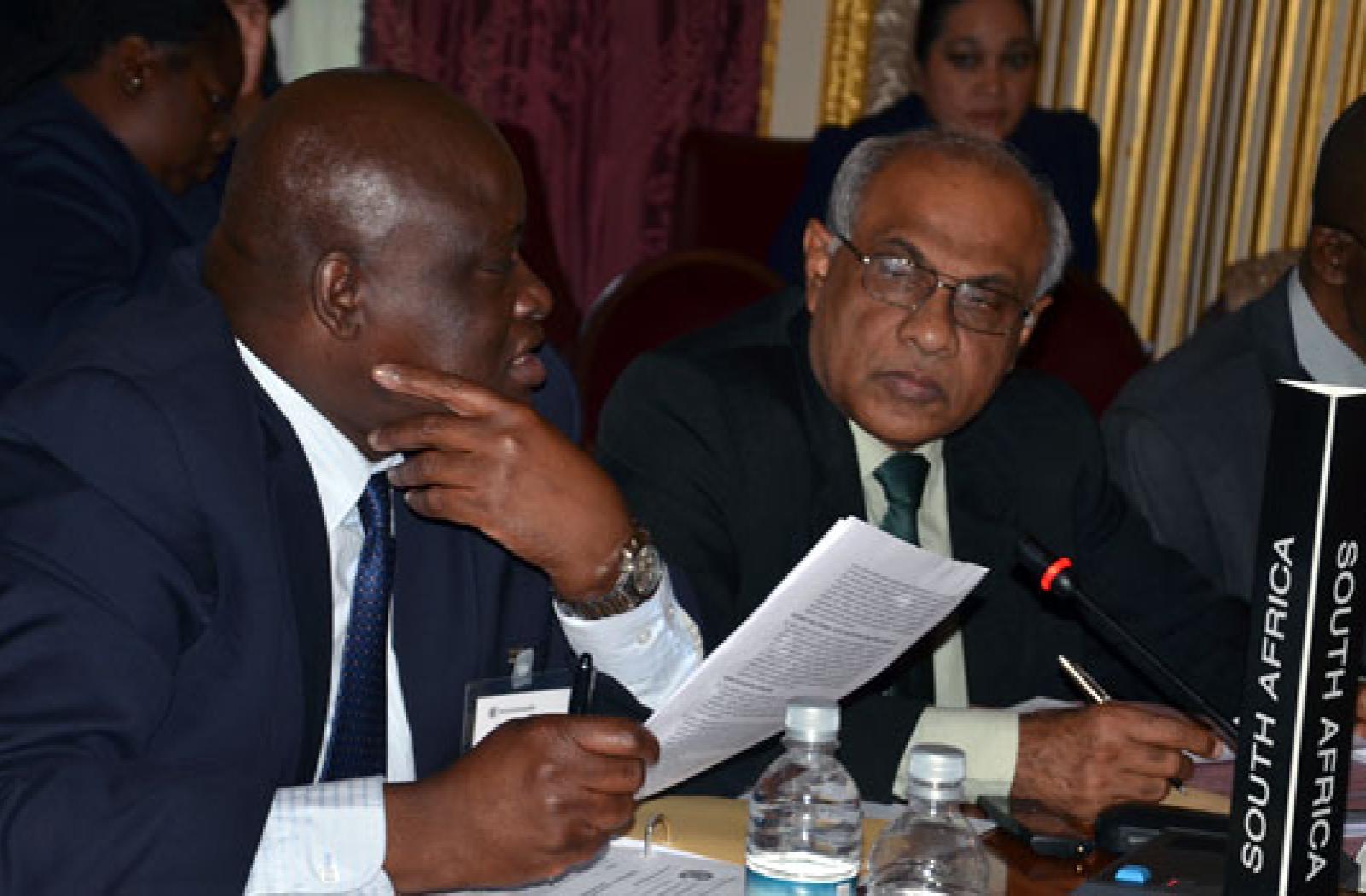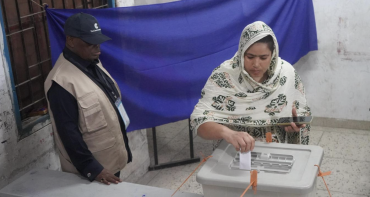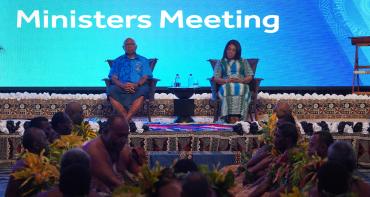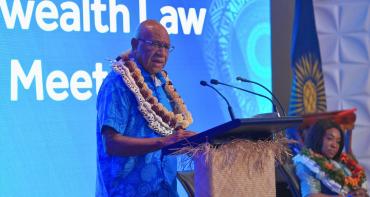Senior officials of Commonwealth law ministries have recognised the importance of international cooperation and specialised training to tackle an increasing number of transnational crimes.

Senior officials of Commonwealth law ministries have recognised the importance of international cooperation and specialised training to tackle an increasing number of transnational crimes.
Meeting in London last week, they said cross-border cybercrime is a particular concern, with offenders based in one country committing crimes in and through multiple jurisdictions. Officials noted that many countries currently lack the capacity to prevent their territory being used as a safe haven for this activity, and that combating these crimes will require effective cooperation between criminal justice officials in different jurisdictions.
Delegates also discussed climate change issues, legislative drafting, counterterrorism, prosecution disclosure obligations, international humanitarian law and strategies to combat corruption and financial and economic crime.
The three day meeting convened by the Commonwealth Secretariat was attended by more than 30 delegates from law ministries in Africa, Asia, the Caribbean, Europe and the Pacific.
Mr Polycarp Chibueze Okorie, Special Assistant to the Attorney General of Nigeria, said his country was very concerned about the cross border scams known as 419, which were associated with Nigeria.
“Everywhere you go there is the impression that the average Nigerian is involved in cybercrime and this is not true. Even when you send correspondence for genuine business transactions people are suspicious,” he said.
He noted that the Nigerian government is introducing a new law to tackle cybercrime and is committed to taking a holistic approach to it, but that cooperation with other countries and specialised training of security and justice officials were vital for addressing the issue.
Mr Rony James Govinden, Attorney General of the Republic of Seychelles also voiced his country’s need for support to tackle cybercrime.
“We do not have a Cybercrime Act. We are a small jurisdiction and cybercrime is a highly technical offence both in terms of drafting the legislation and enforcing the law,” he said. Mr James added that the model Cybercrime Act prepared by the Commonwealth was a helpful guide to Seychelles.
Mr ‘Aminiasi Kefu, Solicitor General of Tonga said for a small, remote country like Tonga with a population of just 100,000, Information and Communication Technology was vital for communication and money transfer. Yet, without the support and cooperation of other countries, Tonga would be unable to protect its communication and IT network from cyber-attacks.
Law Ministers in 2011 adopted the revised Commonwealth Scheme on International Cooperation in Criminal Matters (the Harare Scheme) to assist member countries to cooperate in order to effectively combat transnational crime. Ms Shirani de Fontgalland, Acting Director of the Legal Division at the Commonwealth Secretariat said: “The Secretariat is developing model legislation to assist countries in implementing the scheme, which now includes provisions on the interception of communications.
The Secretariat also facilitates the Commonwealth Network of Contact Persons, a network of criminal justice officials from each member country who can provide informal advice and information on making mutual assistance requests to their jurisdictions.”
She added that the Secretariat has conducted training on international cooperation within broader holistic programmes designed to equip criminal justice officials with both the foundational and specialist skills necessary to tackle transnational crime.
The regional training included a four week web - based module and five days onsite training. It covered topics such as international cooperation, mutual legal assistance, cybercrime, extradition, anti- money laundering, asset recovery, and forfeiture and victim protection.
This training is followed by national mentoring programmes to cement the skills and knowledge gained.
Miss Neema Joseph Ringo, Assistant Director of Public Prosecutions in Tanzania, one of the beneficiaries of the Commonwealth’s East Africa Regional Training Programme for police and prosecutors, said the training has made a big difference to her country.
“My colleagues and I who participated in the training have managed to cascade the knowledge to our colleagues in the office. We have had at least 10 training sessions all over the country so in each of our offices, there is someone with this knowledge,” she said.
The recommendations from the Meeting of Senior Officials of Commonwealth Law Ministries will be presented to Commonwealth Law Ministers at their next meeting in Botswana in May 2014.



